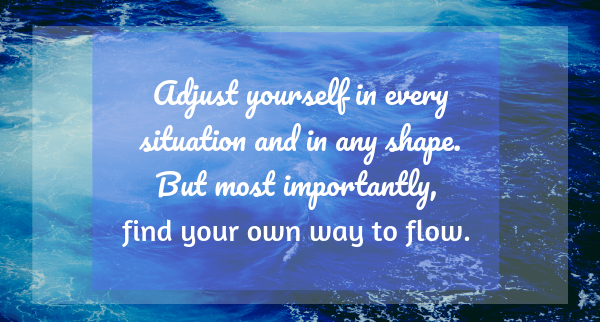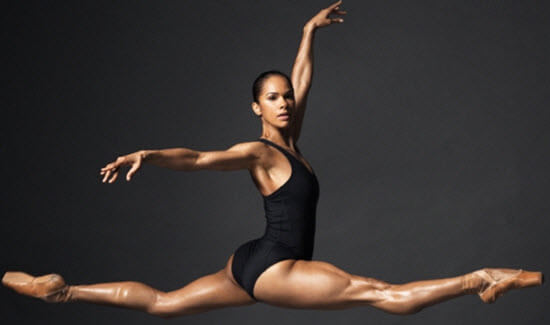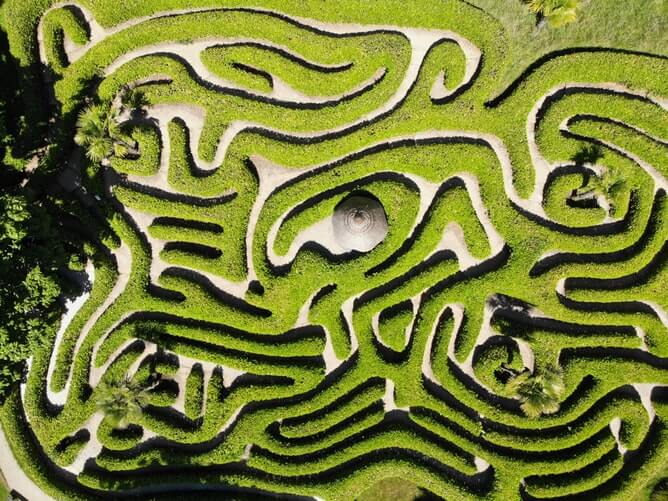HOW TO GET WHAT YOU WANT WITHOUT KILLING YOURSELF

Everyone talks about “grit.” Many self-development books and gurus repeat that this is the one trait that all successful people have. Grit is apparently what makes successful people different from all those regular folks who dream, but never get what they want.
I completely disagree.
If this was the truth, Japan would have the highest rate of getting what they want. They wouldn’t have the highest rate of suicide. Look at Japan, Korea, China. These countries are known for grit and resilience. Going to work in these cultures is ingrained since early childhood, where children are not allowed to play, and work for the sake of work is deemed to be an essential. It’s considered a virtue to work a lot, and to work hard.
In these countries, “balance” is seen as “selfish,” “lazy,” and a fairytale concept. I could speak for hours about my father, who was in once in the Korean Marine and had some serious discipline. My childhood was spent doing homework that dad assigned for us kids, sometimes late into the evening after school. As his child, a “B” was considered a failing mark. This is a cultural mindset, not a cultural obligation, as we were far from the demands of the Korean culture. At that time, we were living in Buenos Aires, Argentina. At the age of 6, none of my classmates were tied to “work” after school into the late evening, as I was.
Children influenced by these cultures are taught grit from very early age. After school, you go to tutoring schools until 10 pm. You barely get sleep, and go to school early the next morning.
Grit made me fail.
Is this statement surprising?
Persistence and resilience are a good thing if we’re going in the right direction. I spent years sticking to things that didn’t work for me: “Never give up.” I worked hard for goals that didn’t align with my values, all because grit was engrained as the default state of mind. Grit made me persistent to stay in toxic relationships and careers that did not meet my end-goal, nor agreed with my core values. Yet, with grit, meaning, with hard work, I thought I could change everything and make them work.
Failure is when we stay in an experiment for much too long.
Every choice is an experiment, and the experiment we stay in for long-term becomes our life.
Grit makes you put up with things that society tells you it’s the right thing, even when it’s the path to failure at your own unique personal level. Careers and why we choose them is an easy example. 20 years later, suddenly we wake up from a coma and see that what we’ve been fighting for wasn’t for our deepest desires. Some of my clients were also able to see the same pattern in their personal relationships.
How do you get what you want without killing yourself? How do you build a life free of regrets from this point on?
Use your values as your internal compass.

Working hard and having grit is valuable when you’re heading the direction that meets your values and your end-goal: your calling, your legacy, your life purpose. It’s about work and relationships that meets your greatest desires and needs.
Another thing to remember is that you can’t change the uncontrollable. Other people, their opinions, how they behave and think… are not up to you. No amount of grit can fix this.
If not carefully used, this amazing virtue called grit can kill you from banging your head against the stone wall too many times, then winning a milestone that you don’t even feel happy about.
When you don’t get what you want, it’s a chance for re-evaluation. Sometimes this means you reconsider your strategies and perspective. Other times, it’s a sign of redirection. Someone with only grit in their bag of tools fail to see perspective, and try the same thing over and over. In the meantime, they learn to accept any pain and dissatisfaction, believing that this is part of the price to pay. This thinking is short-sighted.
Everyone is taught from early age: “No pain, no gain.” Sometimes, there is a lot of pain and minimal gain. And other times, there is barely any pain, and lots of gain. Who doesn’t like the latter?
If the idea of less pain and lots of gain makes you feel guilty, then that’s a sign that you’ve got too much grit and not enough flexibility.

Grit is like muscle strength. Imagine a trainer who trains for hours to build muscles, but neglects stretching. We all believe that muscle makes us stronger. However, an overtrained muscle that lacks flexibility is very immune to injury. A combination of strength and flexibility is what defines true strength, the ability to stretch, expand, and leap beyond what is considered a limitation. A ballet dancer is an symbolic example of an athlete who is the perfect example of agility: muscle strength (grit), and flexibility.
FLEXIBILITY is also what you need for true success. It’s not just about grit. It’s grit AND flexibility.
Regardless of what culture you grew up in, having too much grit and not enough flexibility is a common symptom in people who had to be strong for a long time. Take corporate and business personnel. We see the need to wear a mask to be a professional. We need to be strong, tight, driven, and ambitious. We need to focus on the given goal and meet it. We need to win at all costs.
What if life was not about winning in the most traditional terms? How many corporate executives and entrepreneurs I have coached, who have finally come forward after some 20 years of career, are now facing a flood of resentment, depression, and anxiety… after reaching those important milestones and working so hard for them?
What is it all for?
Flexibility allows you to see a new meaning, and a new perspective, as it allows you to expand your mind towards something more important. And I daresay, there is always a simpler, easier way to approach an issue.
There is always an easier way to get what you want.
Many people cringe at the thought of “easier” or “simpler,” as if a schoolmaster is coming down on them with a ruler.
According to Buddhism, this “way” is to be like water.

Water is the most flexible element. It takes the shape of the vessel that it contains. It can also seep through, go over, and go around anything. Water is the most flexible element as it is also the most forceful (think tsunami).
Water is also a symbol of the most phenomenal coping and strategizing skill.
Water can achieve what grit can never do. Grit is about hitting and beating the wall to get through. Water can go around, over, and through anything. Effortlessly. Gently. Without sacrificing its integrity, losing its temper, losing its essence.
Grit is required to put in the work. Flexibility is required for problem solving.
Too many times, we try to force grit to solve something that flexibility is required. This just complicates the issue.
So how do you become more flexible?
Flexibility, just like grit, is a trained skill. It’s about expanding beyond what you currently believe is possible. Grit is about determination and finishing. It’s about pushing through. Flexibility is about seeing your problem from a bird’s eye point-of-view, and dissolving the issue like a genius who sees all the weaknesses in a problem. After all, nothing is a big problem from such heights. This flow feels like you’re borrowing God’s brain. Ideas flow through you from sources that seem outside of your own power.
Building flexibility starts with working with the subconscious of the individual, and expanding the current limitations. It also involves treating any unresolved trauma. Trauma seizes and freezes the mind, blocking the flow of ideas and creativity. People who have experienced trauma and long-term abuse at work or at home, especially have more challenge with flexibility. This is something that can be treated with the right methods. Think of the seized mind like a seized muscle. There are ways to train to gain back the strength and the flexibility.
Once you adapt this flexibility of the mind, life feels effortless. Circumstances don’t weigh you down. You align with your work, and it all seems much easier, even when the same efforts are required.
How would you like to build your flexibility and expand your mind beyond your known limits, and turn every issue into the perfect stepping stone towards your next brilliant stage?

About the Author:
Hi, I’m Julia Cha and I am a Rapid Transformational Therapist and Coach, working with high-achieving professionals and consultants.
I started coaching in 2016, after 4 years of mentorship with an accomplished and seasoned coach and therapist of 30 years who specializes working with tech entrepreneurs and consultants. I have worked with clients in more than 10 countries, across all continents except Antartica!
I am based in Vancouver, Canada, and I continue to work closely with all my international clientele.
You can download my Legacy Worksheet to map out your current direction in your career, and gain clarity on moving forward.
Or schedule a call to discuss your specific situation and my solutions for living a satisfied life of passion, purpose, work-life integration and fulfilment.
